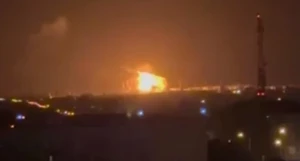
Orban and his "European unity"
It happened so that after the horrors of Nazism and World War II, politicians, wishing to humiliate their opponents, used what they considered to be an "armour-piercing" argument
They compared them to Hitler or the practices of the Nazi leadership. It was believed that further explanations were unnecessary, and the one to whom such accusations were addressed had to sit quietly in the corner, ashamed of what he had done.
It was a win, of course, but an incorrect, as they say, a blow below the belt. But at the same time, it is also one that shows the intellectual level of the "prosecutor" and his inability to look for other analogies in history.
So far, Russia has been considered the record holder in labelling others as "Nazis", throwing accusations against the "Nazi regime of Kyiv" left and right, and then extending this narrative to the entire "bourgeois West" hated by Putin's regime. This is exactly the situation predicted by a phrase probably written by Winston Churchill: "The fascists of the future will call themselves anti-fascists." Although it is not certain that it was the British prime minister who voiced this conclusion.
“So far, Russia has been considered the record holder in labelling others as "Nazis", throwing accusations against the "Nazi regime of Kyiv" left and right, and then extending this narrative to the entire "bourgeois West" hated by Putin's regime”
In the end, Timothy Snyder modernized the old term to define Putinism's ideology: "I called it 'schizofascism'. Ukrainians have the most elegant formulation. They call it 'ruscism'.
It is quite natural that the Kremlin dictator's allies use similar methods, despite the fact that they seem to be completely unjustified by the situation they are in or the values they allegedly profess.
For example, Hungarian Prime Minister Viktor Orban, a leader of the European Union and NATO, but an unquestioning fan of Putin and Putinism, began to criticise Brussels for the urgent calls of other EU members for unity in the face of the threat from the East. Orban did not think long and threw out a macabre comparison. He said that even Adolf Hitler dreamed of European unity and later referred to the idea of an "even closer union."
What can I say? Orban's Hungary, which is surviving thanks to European subventions and subsidies, but even with them is unable to fight the rampant inflation, still harbours revanchist ideas. While for Germany the so-called Weimar Republic became the bifurcation point of fascism, Orban and his associates are still haunted by the consequences of the Trianon Treaty of 1920. The Germans paid severely for the idea of reviving the "Great Reich," but apparently the Magyars have not yet said goodbye to the idea of a "Great Hungary."
Orbán's European unity is an opportunity for Budapest to parasitize on EU grants and funds, but arrogantly reject any hints of certain obligations under the terms of membership in the Union. At the same time, it has not forgotten to call Ukraine "financially insolvent" in a pharisaical manner.
“Orbán's European unity is an opportunity for Budapest to parasitize on EU grants and funds, but arrogantly reject any hints of certain obligations under the terms of membership in the Union. At the same time, it has not forgotten to call Ukraine "financially insolvent" in a pharisaical manner”
When European countries are grudgingly refusing to buy Russian energy, quite reasonably considering it "blood trade" and strengthening the aggressor, who will definitely knock on their doors, Peter Szijjarto is barricading himself between the Danube and the Moscow River to negotiate lucrative contracts with Putin.
When Europeans stand in solidarity with Ukraine, not least because it is paying a bloody price for the values of democracy and freedom, Orban arrogantly and publicly mocks these values. In a recent column, Fidesz government spokesman Zoltan Kovacs cynically accuses Europe of putting global interests ahead of their own, "domestic" ones.
Obviously, Europe is reacting painfully to Hungary's antics. Czech Foreign Minister Jan Lipavsky, in particular, said that no one is forcing Hungarians "to be part of this community if they feel uncomfortable.
But it seems to me that Hungarians do feel comfortable in the EU. The other thing is that Viktor Orban and his associates have made the country and its citizens hostage to their own shortsightedness. I have already written that it is quite likely that on the eve of the Russian invasion, the Hungarian leadership agreed with Putin on the idea of dismembering Ukraine. However, even the fact of the concentration of Hungarian troops on the border with Transcarpathia, which became known recently from Andras Rácz, a Hungarian security expert who now works at the German think tank DGAP, says more than the "peacekeeping rhetoric" of neighboring politicians.
... Another thing is that the Ukrainian Armed Forces have rewritten this ominous scenario. The time will come when the Hungarians will also ask Orban what prompted him to take the side of evil once again in the last century.
About the author. Ihor Hulyk is a journalist and editor-in-chief of Espreso website.
The editors do not always share the opinions expressed by the authors of the blogs.
- News













































